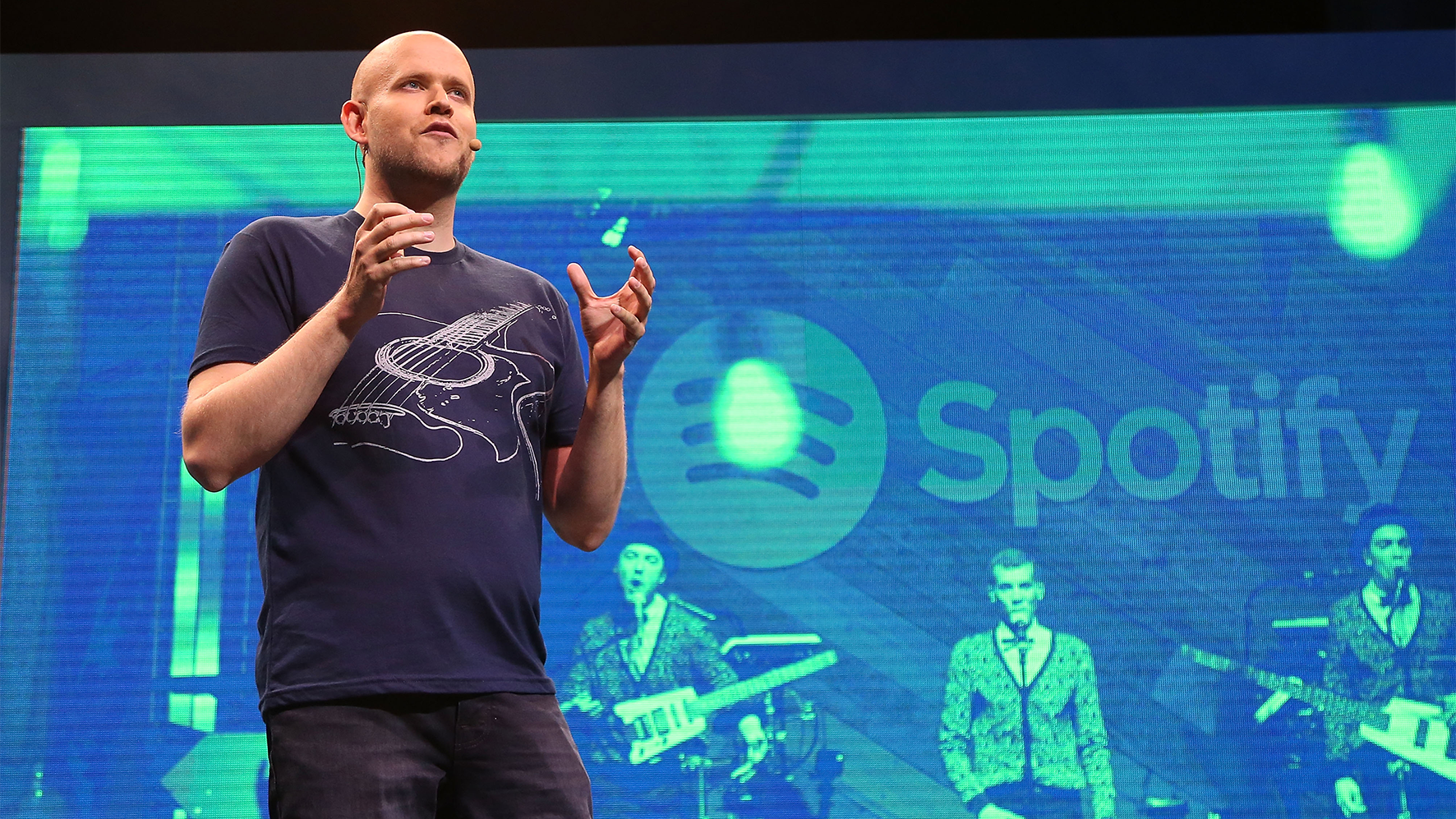Spotify's decision to stop paying royalties on less popular tracks is "discriminatory and exploitative", says competition law expert
Others have suggested that the move indicates Spotify may eventually begin charging artists to host their music on the platform

Want all the hottest music and gear news, reviews, deals, features and more, direct to your inbox? Sign up here.
You are now subscribed
Your newsletter sign-up was successful
Last week, Music Business Worldwide reported that Spotify is planning to make some drastic changes to its royalty model in 2024.
The most controversial of these is the decision to stop paying royalties to the artists and rightsholders behind tracks that are streamed less than 1000 times annually, a move that will effectively demonetize more than two-thirds of its entire catalogue.
In the days since, the move has prompted criticism from many artists and fans who view the proposed royalty model as unfair. Spotify has come under fire in the past for the meagre royalty payments it distributes: this decision only worsens the situation, and is seen by many as a nail in the coffin for the careers of cash-strapped independent artists.
Complete Music Update reports that the decision has led competition law expert Amelia Fletcher to write an open letter to Spotify CEO Daniel Ek, describing the new royalty model as "discriminatory and exploitative". Professor of Competition Policy at the University Of East Anglia, Fletcher is also an independent musician and record label owner.
Fletcher's letter makes reference to Spotify's mission statement, which claims that the business "exists to connect creators with fans, and empower creators to live off of their art". Fletcher argues that the new royalty model directly contradicts this goal. "Not only is it intrinsically unfair, but it is also anticompetitive and seriously risks constituting an abuse of dominance under UK and EU competition law," she continues.
"First, Spotify seems highly likely to have a dominant position in the provision of streaming services to music creators. Most consumers of streaming services are ‘single-homing’ (i.e. use only one service) and Spotify has a strong position in that market (with over 50% share in many European countries).
"Spotify is thus a critical ‘bottleneck’ or ‘gatekeeper’ for music creators seeking to reach streaming consumers. This is important because music streaming now accounts for over 75% of all revenues from recorded music.
Want all the hottest music and gear news, reviews, deals, features and more, direct to your inbox? Sign up here.
"Second, while the proposed demonetisation might seem like a small change to Spotify’s policies, I would argue that it is akin to Amazon simply deciding not to pay the many small traders that account for the last 0.5% of its revenues. It is not only discriminatory and exploitative of music creators, but also creates an unlevel playing field in the market for music creation."
Fletcher believes that Spotify's decision will "harm the longer-term development of music creation" and "limit the potential for new and innovative music to emerge outside of the established mainstream". She also suggests that by demonetizing tracks that fail to meet a particular stream-count, Spotify sets a dangerous precedent that may well see this threshold increased in the future.
Others, such as music critic and author Ted Gioia, have suggested that the streaming giant may eventually go even further by charging artists to host their music on the platform until they meet a certain level of popularity.
Instead of the proposed model, Fletcher joins many others in the industry by suggesting that Spotify adopts a user-centric royalty model in which each subscriber's monthly payment is split proportionally between the tracks that they listen to every month.
Supporters of the new system proposed by Spotify point out that tracks racking up less than 1000 streams annually will only generate a few dollars in royalties each year, money which often fails to reach artists' pockets due to minimum thresholds placed on the amount that they can withdraw from the accounts of their distributors. Spotify claims that its new model will redirect this cash - which totals around $40 million annually - towards "working artists".
Last week, Billboard reported that sources close to Spotify have confirmed that the change to its royalty model will not affect royalty payments to songwriters and publishers in the United States, only those involved in the master recording copyright.
Read Amelia Fletchers' letter in full at Complete Music Update.

I'm MusicRadar's Tech Editor, working across everything from product news and gear-focused features to artist interviews and tech tutorials. I love electronic music and I'm perpetually fascinated by the tools we use to make it.
